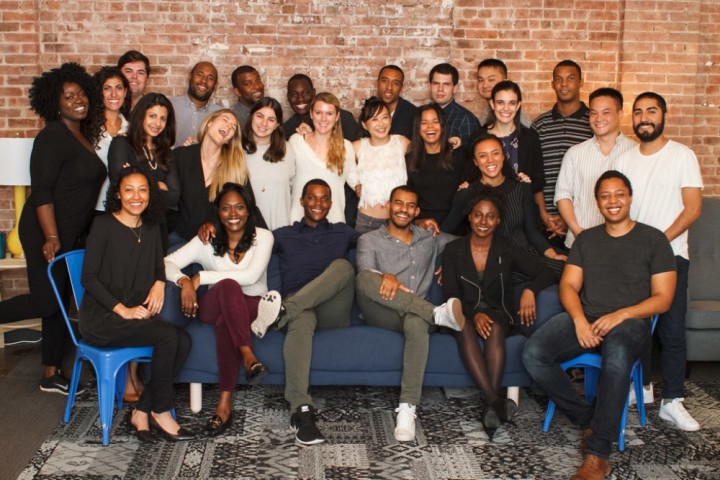The Real Reason It’s Hard To Raise Venture Capital Funds

My cofounder Ryan Williams and I left Wall Street in 2014 to build a tech platform connecting professionals from the most historically underrepresented ethnic backgrounds with recruiters at America’s leading companies. Our journey growing Jopwell over the past two years has gotten us really excited about the many ways in which Silicon Valley innovators are investing in diversifying a historically White-male-dominated industry.
As we’ve navigated the world of raising capital to grow our business, we’ve had the chance to collaborate with some of the world’s leading innovators. Taking part in Y Combinator’s summer 2015 class gave us access to the network and know-how to turn our idea into a 20+ person startup with $4.25 million in funding and more than 50 investors. Many of the funds and individuals backing us – from Kapor Capital and Omidyar Network to Earvin Magic Johnson – are among those actively working to change the landscape of diversity in venture capital.
But I also have to acknowledge that Ryan and my story as two Black founders is in many ways an anomaly within the landscape of venture capital in Silicon Valley. LinkedIn’s new survey results about the state of diversity in VC remind us that tech founders and investors alike still have a lot of work to do. Founders of color, for example, are finding it more challenging than their White counterparts to get meetings with venture capitalists, according to the survey, which also reports that 47 percent of non-White founders have experienced racism while trying to raise capital.
This isn’t surprising. Minority founders looking to raise capital continue to come up against institutional biases, systemic racism, and a history of not having the same resources and opportunities. There’s no magic bullet to alleviating those barriers, but I do think that by open-sourcing more of the “insider” tips around what VCs look for, people from all backgrounds will have more opportunity to secure VC investment.
I’ve learned – often from people who don’t look like I do – that VCs you’re pitching want to see growth metrics that show that companies and users are already buying your product and using your service. Investors also want to see that you’re crystal clear about the problem you’re solving, and that you can build a team of talented people who can help tackle that problem better than anyone else. I want to see venture capitalists across the board more proactively explain to everyone what they look for in founders and in pitches. That’s one way I believe we can make meaningful strides toward leveling the playing field.
Ryan and I have gotten enormous value from hearing stories and advice from other founders who’ve “been there,” and I think it’s important to share that advice as much as possible. To that end, I asked a few founder friends to share a couple tips for entrepreneurs preparing to pitch a leading VC. Here’s what they said:
Nathalie Molina Niño, CEO, BRAVA Investments:
“It's a numbers game, so prepare yourself with an extra dose of epic-sized patience. Just like I tell startups to forget competitors and focus on obsessing over their customers, founders should focus on volume and getting their story down so well it's in their bones, which only comes with practice. Once you can relax and pitch with your eyes closed, you can really start to listen and read a room, and nothing is more important than that.”
Eileen Carey, Glassbreakers founder and CEO:
“Do your research on the specific fund’s team, the founders of its portfolio companies, and the details of the deals the staff is likely to be proud of. Offer compliments on strong deals and ask about numbers – the size of the fund, how many companies total it has invested in, average check sizes, and how many women or minority-led founders are in the portfolio. There's a lot of power in being direct about this. Share how these numbers would change should your partnership move forward. The returns of an investment in an underrepresented minority founder are much greater than just the financial gains.”
Matthew Burnett, Maker’s Row cofounder and CEO:
“One of the most common things investors tell me they look for in fundable companies is ‘familiar patterns.’ As an African-American without an Ivy League background, startup experience, or a pre-existing VC network, this was challenging — but not impossible. My advice to ethnically underrepresented founders is to identify common narratives. For instance, Maker’s Row offers a solution for American manufacturing. Most investors don't have the first clue about manufacturing, but they do have a great deal of experience in startups using technology to unite highly fragmented communities. I shape the narrative into that framework.”


